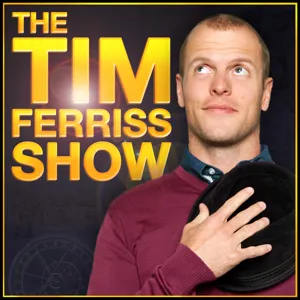Podcast Summary
From math love to coding competitions: Scott Wu, a CEO in AI reasoning, discovered his passion for programming through math and competitive coding, honing his problem-solving skills in the International Olympiad of Informatics.
Scott Wu, the CEO and co-founder of Cognition, a company specializing in AI reasoning, developed a deep passion for programming at a young age due to his love for math. He competed in the International Olympiad of Informatics (IOI), a coding competition akin to the Olympics, where he honed his problem-solving skills. IOI challenges competitors with unique problems that require creative and analytical thinking, building on fundamental algorithms but also requiring the ability to adapt and modify these algorithms for specific use cases. Scott's experience in competitive programming involved dedicating significant time and effort to mastering the discipline and continuously improving his skills. While there are standard algorithms to learn, the essence of the competition lies in the creative problem-solving process.
Online communities shaped by math, programming, and competitions: Forming connections and learning from like-minded individuals in online communities led to valuable skills and friendships, paving the way for successful entrepreneurship and AI careers.
The Internet played a significant role in shaping communities, particularly in the realms of math, programming, and competitions like IUI and CP. These online communities allowed individuals to connect with like-minded individuals, form friendships, and learn from each other despite geographical limitations. The skills and mindset developed in these communities, such as problem-solving, creativity, and independent thinking, have carried over into entrepreneurship and AI. The tight-knit groups formed during these competitions have produced a large number of successful founders, many of whom have gone into AI. The similarities between solving complex problems in competitions and building successful startups are more subtle but significant. Both involve questioning assumptions, finding creative solutions, and pushing oneself to grow. The experiences gained from these communities have had a profound impact on the speaker's career, leading them to launch Cognition and work on Devon, which challenged people's perceptions of what was possible.
Creating an AI software engineer named Devon: Cognition's AI, Devon, can write, edit code, use command line, browse web, read docs, and deploy, test, debug software. It's not meant to replace human engineers but to augment their capabilities and improve productivity.
Cognition's AI software engineer, Devon, represents a new era in software development. The team behind Cognition, comprised of individuals with a strong background in math and programming, aims to accelerate the pace of code by creating an AI that can make decisions and perform tasks autonomously, just like a human software engineer. Devon can write and edit code, use the command line, browse the web, read documentation, and even deploy, test, or debug software. The team's goal is to create an experience that mirrors the interaction between engineers, allowing users to observe Devon's work and provide feedback. The response to Devon and Cognition has been overwhelming, with many expressing skepticism and concerns about job loss. However, the team believes that software engineering will continue to be a valuable skill, as the world increasingly relies on software and technology. Devon is not meant to replace human engineers but to augment their capabilities and improve productivity. The team's love for code and belief in its transformative power in the last few decades motivates them to push the boundaries of what's possible in software development.
AI enabling engineers to focus on creative problem-solving: AI will not replace engineers but rather empower them to tackle more complex problems by automating mundane tasks and unlocking the potential of more people to engage in knowledge work.
The advancement of AI technology, as represented by the Devon platform, is not expected to reduce the need for engineers but rather enable them to focus more on creative problem-solving. The speaker believes that engineering is essential due to the vast demand for it and the numerous problems that could be solved with code. Furthermore, the advent of AI will allow engineers to spend less time on mundane tasks and more time on high-level problem-solving. The speaker also emphasizes the democratizing nature of AI, which will unlock the potential of more people to engage in knowledge work. The unique UI design of Devon, with its tabs for planning, shell, code, and browser, was inspired by the need to give users control over the AI's actions and ensure it stays on track. Overall, the speaker expresses excitement about the potential of AI to accelerate human progress by enabling individuals to tackle a greater number of problems.
Using an AI coding teammate for productivity and learning: An AI coding teammate like Devon can significantly improve productivity and learning for software engineers by executing precise instructions, performing complex tasks without errors, and providing feedback and guidance for skill development.
Using an AI coding teammate like Devon can significantly improve productivity and learning for software engineers. Devon's encyclopedic knowledge and ability to perform tasks without errors make it an invaluable tool for complex tasks such as DevOps and data analysis. Devon's strengths in these areas, such as setting up infrastructure and performing end-to-end data analysis, can free up human engineers' time to focus on more creative and strategic tasks. However, it's important to note that Devon is not a replacement for human engineers, but rather a tool to assist them. Devon excels at executing precise instructions given by engineers and can help with learning new skills through feedback and guidance. For instance, when engineers encounter difficulties in setting up infrastructure or performing data analysis, they can ask Devon for help, allowing them to learn from the process while Devon handles the execution. This collaboration between human engineers and Devon leads to increased productivity and a more efficient development process. Additionally, the ability to learn from Devon's execution and feedback can lead to faster skill development and improved performance for the human engineers. Overall, the use of an AI coding teammate like Devon can lead to significant improvements in productivity, learning, and collaboration within a software engineering team.
Optimizing problem-solving and decision-making in AI development: The practical approach for AI development involves reproducing issues, adding debugging statements, and examining logs or seeking help, rather than analyzing entire codebases for perfect intelligence.
The development of advanced AI models like Devon involves understanding how to optimize problem-solving and decision-making processes. While it's theoretically possible for perfect intelligence to identify and fix bugs by analyzing the entire codebase, the practical approach for humans and current AI systems is to reproduce the issue, add debugging statements, and examine logs or ask for help from external sources. The focus is on helping Devon or similar systems think and make decisions in a human-like way. Looking ahead, it's expected that software engineering will evolve significantly within the next decade, with AI and human-computer interfaces becoming more advanced, reducing the need for humans to learn complex languages and work through intricate stack traces to communicate with their computers. Instead, software engineering will increasingly become a discipline focused on working effectively with advanced AI systems.
The Future of Software Engineering: Exciting Advancements and Challenges: Software engineering is evolving rapidly with advancements in AI, hardware, and foundation models. Understanding trends and applying new technologies effectively will be crucial for success in the field.
Software engineering is an exciting field with high demand due to the constant evolution of software and technology. Software engineers focus on designing solutions to complex problems, while the implementation details are handled by developers. The industry is seeing rapid advancements in areas like AI, hardware, and foundation models, which will significantly impact the development of intelligent agents. Improvements in reasoning, memory, self-play, and infrared speedups are expected to contribute to the progress of agents. From a human perspective, encyclopedic knowledge will no longer be a requirement in five years. Instead, a focus on understanding the latest trends and technologies, and the ability to apply them effectively, will be essential. The future of software engineering is promising, with a multitude of factors contributing to its growth and development.
The importance of foundational knowledge in computer science and mathematics for software engineers: Software engineers need a strong foundation in computer science and mathematics to succeed, as they will continue to be valuable despite the evolving role and potential impact of AI and automation.
While the ability to communicate effectively in English and adapt to new programming languages will be important for software engineers, foundational knowledge in computer science and mathematics will continue to be valuable. The role of a software engineer may evolve to include more problem-solving and strategic planning, but the importance of understanding the basics of how computers work and logical reasoning will remain. The future of the field is uncertain, as AI and automation may take on more tasks, but the impact of AI on work and economy is expected to be felt sooner rather than later. It's important for software engineers to stay informed and adapt to new technologies, but the fundamentals will remain a solid foundation.
Hiring for high ownership, strong work ethic, creativity, and good communication skills: Cognition values individuals with good reasoning, fundamentals, and understanding of technology, and is looking to hire more engineers and researchers with high ownership, strong work ethic, creativity, and good communication skills.
Good reasoning, fundamentals, and understanding of technology will continue to be valuable in the current and possibly future technological landscape. The team at Cognition places great importance on hiring individuals who possess high ownership, strong work ethic, creativity, and good communication skills. They have mainly grown their team through their close network and are currently looking to bring on more great engineers and researchers to contribute to various aspects of their business, including engineering, research, product, and strategy. The team's background in founding companies or considering starting their own makes them highly driven and focused on outcomes.






